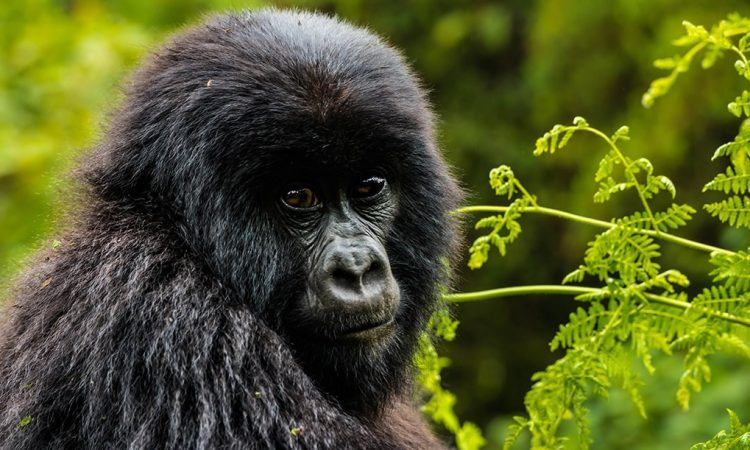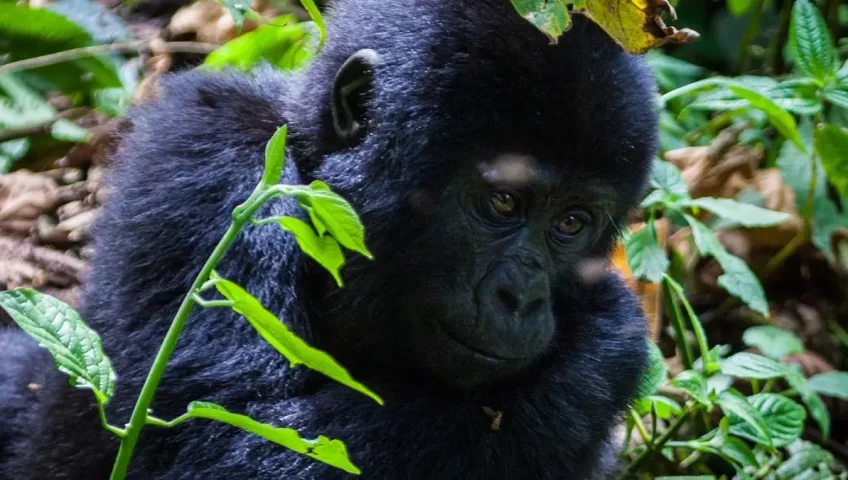Is Gorilla Trekking Ethical and Good for Conservation?
Gorilla trekking still features as the bucket-list adventure when it comes to safaris to Africa. But what remains uncertain is how ethical is gorilla trekking? Gorilla trekking plays a significant part when it comes to wildlife conservation/protection, particularly mountain gorillas. Whether this Gorilla Trekking is ethical or not remains one area of concern amongst enthusiastic travelers. The fact is that gorilla trekking is ethical!
Comprehensive conservation initiatives have been developed and several protocols implemented not only by Uganda Wildlife Authority (UWA) but also other stakeholders. These are aimed at ensuring that all visits to Uganda gorillas or gorillas in Rwanda are done ethically.
Plight of the mountain gorillas
As of 1960, mountain gorilla population was estimated to be 240 and these massive apes survive only in the 3 African nations: Uganda, Congo and Rwanda. Their plight was heard by the world thanks to Dian Fossey for her conservation initiatives and letting the world know about these apes.
As of 2023, about 1063 endangered mountain gorillas still exist in the wild, thriving in Mgahinga Gorilla National Park & Bwindi Impenetrable National Park (Uganda), Volcanoes National Park in Rwanda and Virunga Park in the D.R. Congo.
How ethical is gorilla tracking
The first gorilla family was opened to tourists to track in 1993 in Buhoma sector in Bwindi that is Mubare. Today, Bwindi alone contains up to 20 habituated gorilla groups which are distributed in the 4 sectors/regions: Ruhija, Nkuringo, Rushaga and Buhoma. In Rwanda, 12 gorilla families have been fully habituated including the Susa A, Agashya while in the D.R. Congo, Virunga NP has 8 habituated gorilla groups.
Mountain gorillas are endangered species, and tracking to see them requires you to obtain a valid gorilla permit. You can obtain a gorilla permit through a reliable tour operator in Uganda, Rwanda or Congo. A valid gorilla permit in Uganda is available for purchase at USD 800, USD 1500 in Rwanda and in the D.R. Congo.
The gorilla permit issued to visitors allows you to enjoy a close encounter with a family of mountain gorillas in the wild. Part of the revenue collection from gorilla permits/gorilla safaris is used directly to support different conservation efforts aimed at saving the lives of these apes.

The set prices for gorilla permits play a significant part in reducing visitor numbers and as a result, it helps promote conservation of these large apes. Of recent, concerned nature lovers have become very conscious of the ethical issues that surround gorilla encounter. When booking gorilla permits, strictly persons above 15 years are considered to be eligible and each gorilla family is visited by a maximum of eight tourists per day.
The set gorilla trekking rules and regulations
While on gorilla trekking, there are set guidelines for every trekker to observe whether it is Rwanda, Uganda or Congo. The gorilla trekking guidelines to be observed are same across the 3 destinations and include;
- Always observe a distance of 7 meters away from gorillas so as to reduce any chances of them contracting the infectious human diseases.
- In case you aren’t well, you won’t be allowed to visit gorillas.
- Do not feed gorillas while on a trek.
- Littering the gorilla habitat is highly prohibited.
- When gorillas charge at you, look down, this is a sign of submissiveness and avoid direct eye contact.
- Use of flashlight cameras isn’t allowed, alternatively, you can turn off the flashlight before you begin taking any pictures.
- Do not make loud noise while tracking mountain gorillas.
Threats to mountain gorilla survival in the wild
Longevity of the endangered mountain gorillas still remains a major challenge considering the various threats they encounter in the wild. These include infectious diseases –mountain gorillas share over 95% of their DNA with humans making them very susceptible to infectious human diseases.
Poaching has proven to be major threat not only to mountain gorillas but also other wildlife in Africa. These large apes are poached for a number of reasons, including need for their body parts for traditional medicine trade.
Habitat loss –mountain gorillas confine within the natural tropical rainforest-dominated areas in Africa. These protected areas have been encroached by nearby communities. The increase in human population comes with increased need for land for settlement and farming.
Contact us for Information and Inspiration about Gorilla Trekking in Uganda and Rwanda


